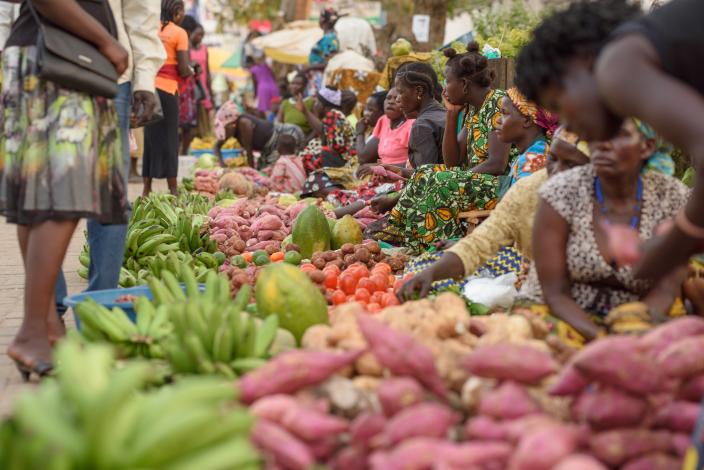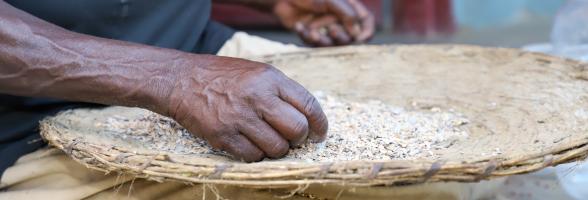Introduction
Seeds are fundamental for food and income security. 1 of 3 people suffer hidden hunger and seasonal hunger leading to the loss of assets, health problems and chronic poverty. If we fail on the Right to Food, we fail on the most basic of human rights. SD=HS is a farmer centered food system program and a joint effort of world leading organizations
Uganda's Context
Certified seeds of registered varieties are limited to few crops like maize. Additionally, they are expensive for smallholder farmers and sometimes not accessible because of distant markets. Many of these seeds are also not adaptable to diverse agro-ecologies. Consequently, an estimated 90% of smallholder farmers use their own farm saved seeds, and 80% of these seeds are locally sourced (i.e. farm saved seeds, farmer -to- farmer exchanges or purchase from local markets.), posing problems with varietal purity, seed health, and yield stability. The quality of these seeds can be improved in many ways.
Overall objective of SD=HS phase 2 program
Indigenous peoples and smallholder farmers enjoy their Farmer’s Rights and have the capacity to access, develop and use plant genetic resources to improve their food and nutrition security under the conditions of climate change.
4 Interrelated changes we want to see
1. Community: Resilient indigenous & farming communities are better able to access and sustainably use plant genetic resources for food and nutrition security, climate change adaptation and disaster management (Pillar1: Managing Crop Diversity)
2. Market: Indigenous peoples and smallholder farmers enhance their livelihoods, income and seed security by improving market access to high-quality seeds if diverse crops and varieties adapted to farmers’ seeds systems. (Pillar 2: Bridging the gap between farmers’ seed systems and the market)
3. A changing climate: The rural poor, especially women and youth, strengthen their coping strategies during the hunger period through improved utilization of neglected of underutilized species. (Pillar 3: Using Neglected and Underutilized Species to reduce hunger)
4. Policy: Smallholder farmers and indigenous peoples and youth engage in an enabling policy and institutional environment for the implementation of farmers’ right and the further development of local farmers’ seed systems. (Pillar 4: An enabling policy environment)
Funded By:
- SIDA
Budget:
- €1,032,809
Participants:
- 72,000 direct beneficiaries who will be members of 480 Farmer Field Schools (FFS)
Partners:
- Eastern and Southern African Small Scale Farmers' Forum (ESAFF) Uganda.
- Participatory Ecological and Land Use Management (PELUM) Uganda
Project Location:
- Amuria, Amuru, Gulu, Omoro, Kitgum, Nebbi, Soroti, Serere, and Zombo districts which fall under Teso, Northern Uganda and West Nile Farming systems.

